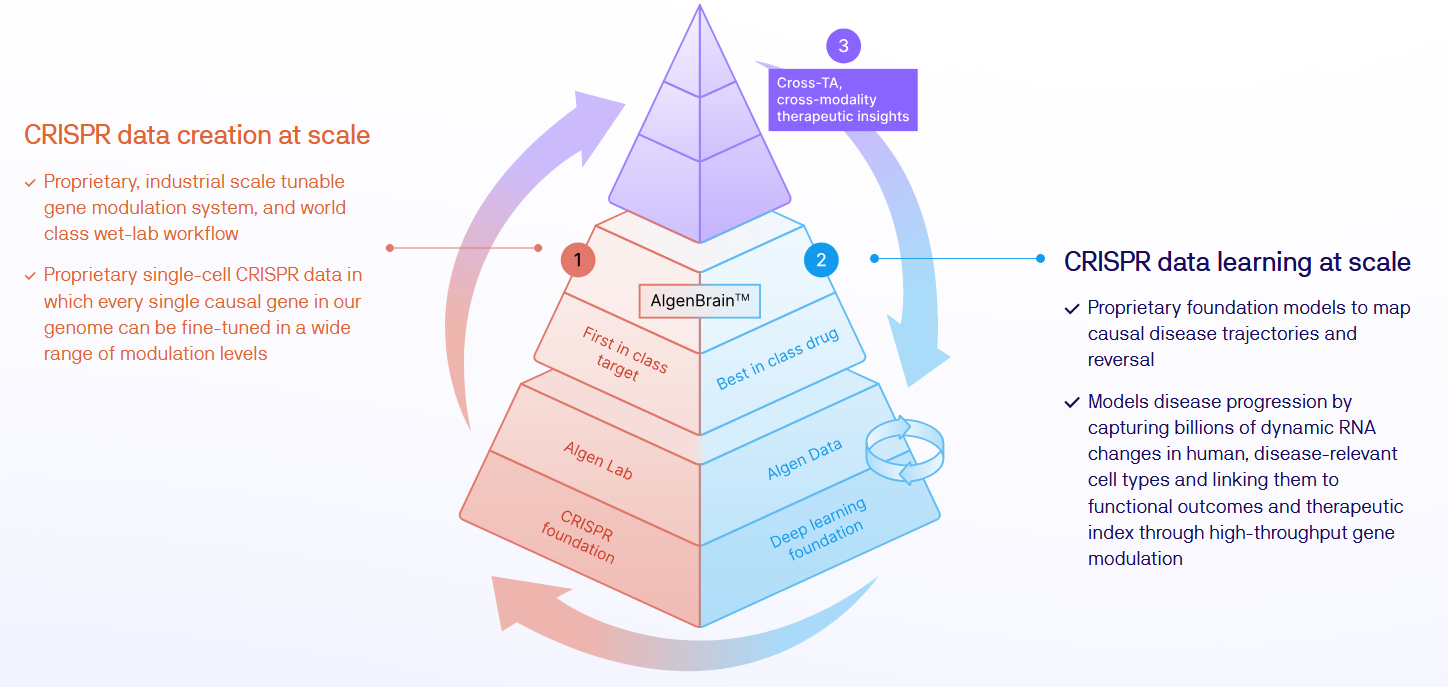AstraZeneca Signs $555 Million AI Deal For CRISPR Therapies
AstraZeneca agreed to a collaboration worth up to $555m in regulatory and commercial milestones with San Francisco–based Algen Biotechnologies, securing exclusive rights to develop and commercialise therapies from CRISPR gene-editing technology; AstraZeneca is not taking an equity stake. The work will target immune system diseases, pairing Algen’s AI with CRISPR.
Algen was spun out of the Berkeley lab where Jennifer Doudna developed CRISPR; Doudna is an adviser to the company. Algen has previously raised $11M and received a $350,000 NIH grant in 2021 for cancer research. The payment structure is tied to regulatory and commercial milestones rather than equity participation.
See also: 12 Startups Applying AI to Gene Editing: From Custom CRISPR to Zinc-Finger Revivals
AstraZeneca frames AI as a tool to be introduced carefully into R&D workflows amid what its chief data scientist characterises as a period of hype. The FT notes that, while AI is intended to speed testing and lower costs, few AI-discovered drugs have reached late-stage trials and none have been approved to date.
Algen, which has applied machine learning in oncology, will focus its AstraZeneca work on immune indications. Industry voices cited by the FT argue that AI’s impact will depend on rigorous benchmarking against conventional methods, given high clinical failure rates and a view that pharma’s present role in early-stage AI discovery remains limited.

Algen's platform, Source: Algen Biotechnologies
Algen describes a disease-agnostic platform that couples CRISPR perturbation with its “AlgenBrain” foundation models to reverse-engineer disease trajectories and pinpoint causal intervention points. It generates proprietary single-cell CRISPR datasets using an industrial-scale tunable gene-modulation system; the models then capture “billions of dynamic RNA changes in human, disease-relevant cell types” and link them to functional outcomes and therapeutic index.
As of October 2025, Algen's pipeline lists precision oncology programs AB-1 and AB-2 for advanced solid tumors (preclinical), and two immunology programs at discovery stage. The company adds that the platform extends to metabolism.
The sector context includes Roche’s 2023 partnership with Nvidia for drug development, and AstraZeneca’s 2019 collaboration with BenevolentAI in lung and kidney disease. BenevolentAI’s shares fell more than 99% before its March delisting via a merger into Osaka Holdings S.à r.l., though AstraZeneca says the partnership remains in place.
This comes as other large pharmas explore shared infrastructure for AI-driven discovery. Just last week, BMS, Takeda, and Astex joined AbbVie and J&J in a federated effort to train protein-ligand interaction models without pooling raw data—part of the OpenFold3 initiative led by Columbia’s AlQuraishi Lab and run on Apheris’ privacy-preserving platform. We’re following moves like these in our Industry Movers column and Where Tech Meets Bio weekly newsletter.
Topic: Industry Movers